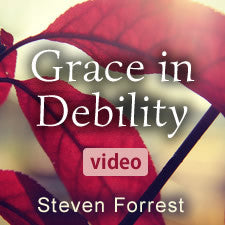When Bad Planets are Good
When Bad Planets are Good
by Tony Howard
We can usually count on nice weather in Portland in September. It’s often like a much-needed extension of summer – a sweet memory to tuck away for the rainy months to come. But no such luck this year. In fact, it’s been raining cats and dogs. And it usually only rains butterflies and hummingbirds here, if you know what I mean (light sprinkles and mini drops).
So after about 5 days in a row this week without seeing the sun, I started getting grumbly. But now as I prepare October’s newsletter, it’s all perfect fodder for this month’s subject: The Grace in Debility! Because if we’re evolving well in life, we learn to appreciate the benefits in "taking our medicine," whether that means eating our greens for health, or accepting the first frost, which might signal the start of winter, but also lays the stage for the coming rebirth of Spring.
Planets in "detriment" have historically gotten a bad rap from astrologers, and famously the ancient ones, who associated such signatures with “bad fortune.” Perhaps because they weren’t yet thinking psychologically, they weren’t able to look under the surface to see the advantages one has with a placement like Mars in Libra. As Steven points out in this month’s audio and video release, there is a distinct difference in the energetic flow between a planet in its sign of rulership, and its sign of debility. But that difference doesn’t mean one is bad and one is good.
The Grace in Debility
 If you have a planet in the sign of its detriment, no doubt at some point you've read something or worse, had a reading, that made you feel bad about it. But the truth is, no planet-sign combination is all bad or all good. There is a high and low expression to every symbol in the zodiac. Here Steven describes some of the gifts in disguise that are available when planets are in the sign of their detriment. It is offered in the hope that if you've left one of "those" readings with bad feelings about yourself, you can start to heal that now with this new perspective.
If you have a planet in the sign of its detriment, no doubt at some point you've read something or worse, had a reading, that made you feel bad about it. But the truth is, no planet-sign combination is all bad or all good. There is a high and low expression to every symbol in the zodiac. Here Steven describes some of the gifts in disguise that are available when planets are in the sign of their detriment. It is offered in the hope that if you've left one of "those" readings with bad feelings about yourself, you can start to heal that now with this new perspective.
Consider the example he uses: would you be more inclined to have dinner with a stranger who never questions their actions (one possible expression of Mars in Aries), or with someone who is always aware of the paradox and complexity inherent in any important decision (a potential expression of Mars in Libra)? Of course, this isn’t meant to turn into some kind of reverse bashing session for planets in their sign of rulership! Who better to take important actions quickly and decisively than Mars in Aries? The point is that we celebrate our differences, and look for the gifts and the graces in whatever placements we find in our own birth charts. This is one of the hallmark’s in Steven’s form of astrology, and the thing that drew me (and I suspect, many of you) to it in the first place.
And a funny aside: the title of this newsletter is somewhat of a joke. Steven has been known to jokingly warn students that they’ll be fined for using the phrase "bad planets."
In The Grace in Debility, Steven takes us on a tour through each of the planets in the signs of their detriment. In the spirit of his talk, why not take this moment to consider the ways in which all of the challenging placements in your chart are actually blessings in disguise. We like to complain about the hardship of a Saturn transit. But if we hunker down and do the work, the payoff is sweet. In every placement, there is a blessing and a curse. It’s up to us to steer the ship in the direction of the blessing!
As we head into fall, let’s consider the grace inherent in resolving to prepare for winter, in the natural endings at hand, and in the process of letting go. As we sense the wisdom in saying goodbye to the warmth of summer, may we then use that same mature lens to see ourselves, accepting with grace all that we are, and celebrating our differences and the unique gifts that we all possess, already. Even the challenging ones.
Some Notes on Debility
As we approach the topic of planetary debility from an Evolutionary perspective, it’s important to set the stage for the conversation by considering our astrological history. Ancient astrologers looked at charts (and the world) with a very different set of needs and expectations than we have now. Sure, we have a lot in common with them. We still don’t like being sick, and we’d rather have the resources we need than have to struggle to get them. But as our awareness of our own psychology has become more and more sophisticated, so have our needs and expectations. We now have questions the ancients may not have had, that are specific to our times and our cultures. And we look at our charts through that arguably more complicated framework.
For instance, let’s say we’re facing one of life’s dire circumstances, such as a diagnosis with a life-threating illness. In a best-case scenario we psychologically rise to the challenge. In the process we may become aware of resources we didn’t know we possessed – resources we wouldn’t have developed or wouldn’t have been aware of if things had been "easy." And even if we don’t physically "beat the illness" we might respond in a way that inspires others around us, and that facilitates deep and positive changes within. From the ancient’s point of view, does this look like bad fortune? Probably. And if we could have foreseen the future, would we knowingly choose such a path? Probably not. But would our angels, or our souls choose such a path for us? That answer is of course, more complicated.
It’s with that kind of psychological/spiritual lens that we can begin to reframe the concepts (and words) the ancients used to describe difficult planet-sign combinations. Sure, if you have Venus in Scorpio, your relationships may not be 100% light and breezy. But the emotional work you have the opportunity to do will be richly rewarding if you rise to the challenge. Your chart suggests that you’re ready for just that.
It’s also important to note that in Evolutionary Astrology, we’ve veered somewhat from the specific techniques the ancients used to describe one’s "fortune" when planets were in the sign of their debility. First, it was common for them to use the Whole Sign house system. So if you’re using a system like Placidus today, you’re adding a level of complexity that wasn’t there before. And second, planetary rulership itself was used in a different way. Historically, rulership would determine whether the topic signified by a house would have the energy it needed to accomplish what that house signified, and if the outcome would be favorable or not. The questions asked tended to be more "material" and less psychological.
Let’s take the topic of marriage for instance. Astrologers back in the day would look to the "condition" of the planet ruling the 7th house to determine if marriage was a) possible and b) fortunate. Today we might look to that same planet to describe the nature of the relationship itself, and also of the person we’re in relationship with. We’ve added layers of complexity to our understanding.
 Although this isn’t a complete discussion about the techniques of Traditional Astrology, whose rules are complex, let’s take our example a step further. Let’s say that in our imaginary chart we have Saturn ruling the 7th house, in the sign of Cancer, its sign of detriment. And let’s make it “even worse” by adding that Saturn is in a challenging aspect – say, square to Mars. Does this mean that we should give up all hope of having an amicable loving relationship, let alone having one at all? The Evolutionary answer is of course, no! Does this placement suggest potential relationship challenges of a Saturnian nature? Very likely. Does it suggest some issues we may have to work on around integrating anger and our sense of personal will because of the square to Mars? Again, very likely. But are those insurmountable difficulties that will lead to the demise of every relationship we enter into? Only if we let them!
Although this isn’t a complete discussion about the techniques of Traditional Astrology, whose rules are complex, let’s take our example a step further. Let’s say that in our imaginary chart we have Saturn ruling the 7th house, in the sign of Cancer, its sign of detriment. And let’s make it “even worse” by adding that Saturn is in a challenging aspect – say, square to Mars. Does this mean that we should give up all hope of having an amicable loving relationship, let alone having one at all? The Evolutionary answer is of course, no! Does this placement suggest potential relationship challenges of a Saturnian nature? Very likely. Does it suggest some issues we may have to work on around integrating anger and our sense of personal will because of the square to Mars? Again, very likely. But are those insurmountable difficulties that will lead to the demise of every relationship we enter into? Only if we let them!
 We may not always be in control of the circumstances we find ourselves in, but we’re always in charge of how we respond. And those responses are usually what we point to as the genesis points for of our biggest evolutionary leaps. If you ever forget this, read the best book I can think of on the subject: Man’s Search for Meaning by Viktor Frankl. It’s a testament to the strength, resiliency and beauty of the human will. We can rise to any challenge before us. But we have to choose to do so.
We may not always be in control of the circumstances we find ourselves in, but we’re always in charge of how we respond. And those responses are usually what we point to as the genesis points for of our biggest evolutionary leaps. If you ever forget this, read the best book I can think of on the subject: Man’s Search for Meaning by Viktor Frankl. It’s a testament to the strength, resiliency and beauty of the human will. We can rise to any challenge before us. But we have to choose to do so.
So, while the ancients may have predicted that our outlook for marriage is bleak with Saturn in detriment ruling the 7th house, and while from an outsider’s perspective, that may be how things look, our experience of our own lives may be entirely more complex. Things that look like difficulties to others may appear to us to be our greatest gifts. Our struggles come with a special kind of reward – usually the kind that is lasting and stirs us to our core, in a good way.
Best wishes,
Tony Howard
New Website
Our new website has been live for about a month now. We’ve discovered and corrected a few bugs here and there. So if you see one, like a broken link, or something not loading, let us know! And if you’re using the site on your phone, we’d love to hear how it’s working for you.
NEW RELEASE
The Grace in Debility
 If you have a planet in the sign of its detriment, no doubt at some point you’ve read something or worse, had a reading, that made you feel bad about it. But the truth is, no planet-sign combination is all bad or all good. There is a high and low expression to every symbol in the zodiac. Here Steven describes some of the gifts in disguise that are available when planets are in the sign of their detriment. He offers this recording in the hopes that if you’ve left one of “those” readings with bad feelings about yourself, you can start to heal that now with this new perspective.
If you have a planet in the sign of its detriment, no doubt at some point you’ve read something or worse, had a reading, that made you feel bad about it. But the truth is, no planet-sign combination is all bad or all good. There is a high and low expression to every symbol in the zodiac. Here Steven describes some of the gifts in disguise that are available when planets are in the sign of their detriment. He offers this recording in the hopes that if you’ve left one of “those” readings with bad feelings about yourself, you can start to heal that now with this new perspective.
Steven gives a description for every major planet in detriment, including the transpersonal planets Uranus, Neptune and Pluto. You’ll hear the up side of having Mars in Libra, Mercury in Sagittarius, Venus in Scorpio and all the rest.
Note: This talk only covers detriment. It does not cover planets in their fall, or in their rulership or exaltation.
2013. 43 min. Available in two different formats:
$10 Audio Only | $15 Video Download

Tony Howard graduated Summa Cum Laude in history and film from the University of Colorado. His degree turned out to be the perfect precursor to his career in astrology, where his focus includes historical research and chart analysis. His writing has been featured in The Mountain Astrologer and in two Flare anthologies: Astrology, the Next Generation and The Book of Music Horoscopes.
Tony has been researching declination since 2011 and specializes in “out of bounds” planets. He also loves working with and studying aspects, which forms the core of his work with clients. He is the founder of Astrology University.

